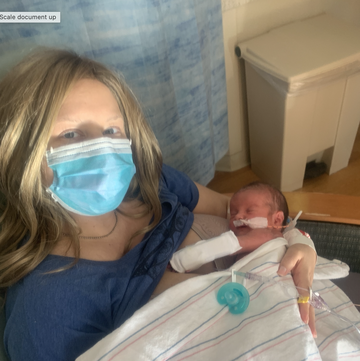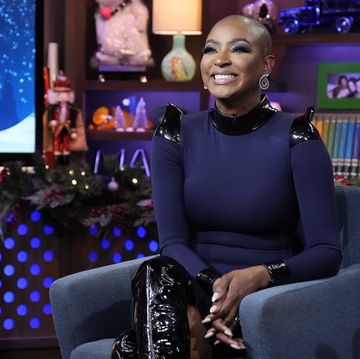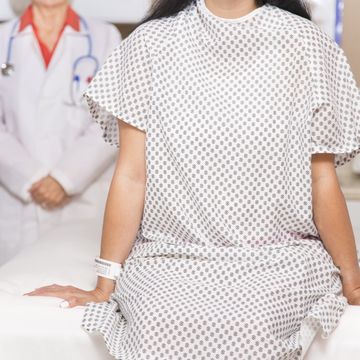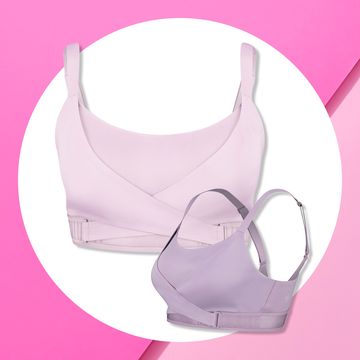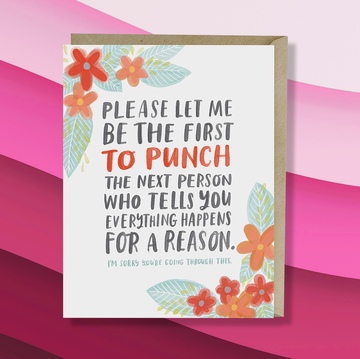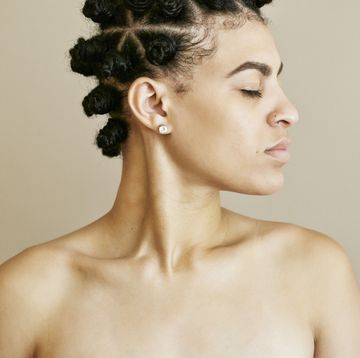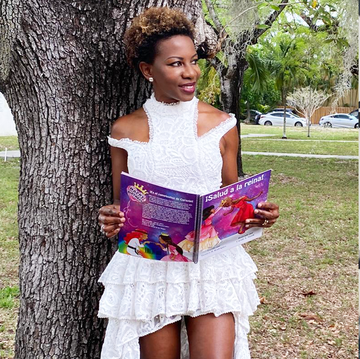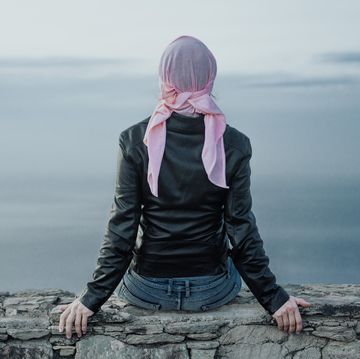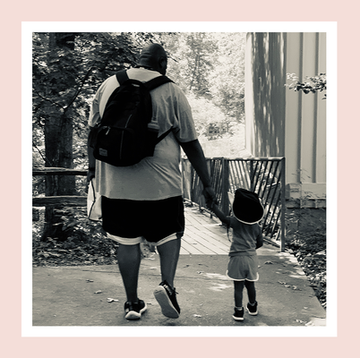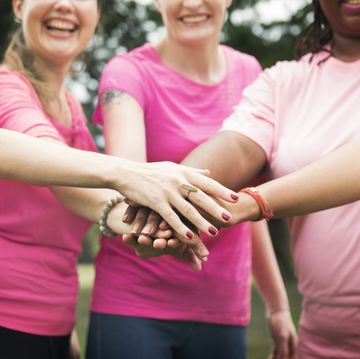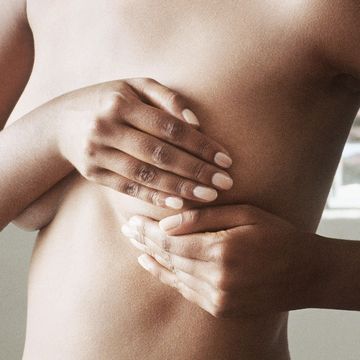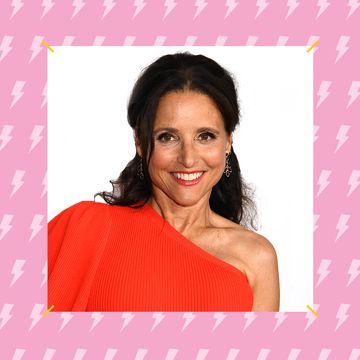Jennifer Griffin, a national security correspondent for Fox News Channel, was diagnosed with triple negative breast cancer on September 28, 2009, when she was 40 years old. Her superwoman approach to fighting the disease: “I put on my flack jacket and went to war,” she says. Here, we ask about her personal battle, how she remained positive, and how diet and exercise played a role in her fight.
How did you discover you had breast cancer?
I have a family history of breast cancer—my mom had breast cancer and my great grandma died of it when she was young—so I had been going in for mammograms since the age of 30. During my pregnancy with my son Luke and while nursing him, I couldn’t get screened. I thought your breasts were protected from cancer during this time, anyway.
By the time the tumor was discovered, it was the size of a grapefruit. I’m sure you want to ask: how can you miss something so big and fast-growing like that? At the time my breasts were changing so much. They were engorged from nursing. As they deflated while I was weaning Luke, the tumor was found.
You were diagnosed with stage III triple-negative breast cancer. What were the challenges associated with that?
Triple negative is more rare, affecting 15 to 20 percent of patients. It’s a relatively new category of breast cancer. One of the things that makes it unique is that there is no drug to prevent recurrence. The only way to treat it is with heavy chemotherapy and, well, then you hope for the best. Oddly, I’ve known many women with three children, like me, who were diagnosed with triple negative.
So you jumped in and took immediate action after you got the news?
Well, I allowed myself a night of fun: The night I was diagnosed, I went to a U2 concert. It was already planned and there was no way I was going to miss it! The next day, I chose my oncologist. A week later, I started chemo. I didn’t have enough time for self-pity. I’m a mother of three kids, and you don’t have a lot of time to think about yourself. In my line of work, I’ve covered many wars; I worked for 15 years overseas. There was no way I was going to sit down and roll over and not fight it.
After chemo, you got a double mastectomy. How was that decision made?
My doctors were leaning toward the surgery. There wasn’t a lot of choice involved for me. I said, ‘Give me the max!’ Plus, a double mastectomy would allow me a nice reconstruction surgery. I was going to get something out of this!
You’re a runner. How important was exercise during treatment?
So important for my body and psyche. I ran the morning of every chemo session. And I also did Pilates two or three times per week. I wanted my body to be strong so that all systems would fire on all cylinders. The Pilates was especially important when it came to my double mastectomy. Pilates strengthens your core, improves breathing, stretches your muscles, and increases your range of motion—all factors that I believe helped me recover faster after surgery.
Would you call yourself a health nut during your treatment?
Yes! I really cleaned up my diet. I ate low fat, no dairy, no alcohol, no processed foods, whole grain everything, lots of veggies, heavy on the kale. I wanted to give my body the nutrition it needed to be strong and fight.
Why was living a healthy lifestyle so important?
After diagnosis, you’re looking at a year of your life that will be devoted to fighting and overcoming the disease. You need to look at it as a marathon year and get your body, mind, and spirit as strong as it can be.
What is something nice you can do for a friend who’s been diagnosed with cancer?
Deliver healthy, homemade meals to your girlfriend. My friends were sending these quinoa veggie dishes and kale soups after my chemo sessions. These meals give you such a powerful sense of nourishment. My friends at Fox all donated to this effort and it touches me to this day.
You’re celebrating four years of remission. Do you feel like the battle is behind you yet?
Almost. When I get to the five-year mark, I’ll really be able to breathe a sigh of relief. Four years out I still have scars from my cancer battle. The disease is an assault on your life, femininity, and womanhood. Today, I wear my scars with pride. My hair was long and blonde when I started and now it’s short and spiky silver—and I walk with my head held high and feel more beautiful than ever.
What advice do you have for staying positive in the face of a terrible diagnosis?
It’s important to feel beautiful during this process. Chemo is ugly: you’re bald, you lose your toenails so you can’t wear sandals or get pedicures, and your eyelashes fall out. One program that I love is called Look Good Feel Better. They provide workshops to women on how to wear wigs, apply makeup, tie beautiful scarves, and more to help you walk out of the house feeling good. I went out and bought comfy cozy cashmere sweaters, black leggings, boots, and a shawl. I felt stylish during chemo.
Any final words of encouragement for someone recently diagnosed?
Don’t let the diagnosis be a crushing blow. Though the process will be difficult, there are lots of advances that make it better. For example, there are now great anti-nausea drugs for chemo and there are great plastic surgeons to give you new, beautiful breasts. Battling cancer isn’t a piece of cake, but you can fight like hell!
Photo: Fox News Channel


